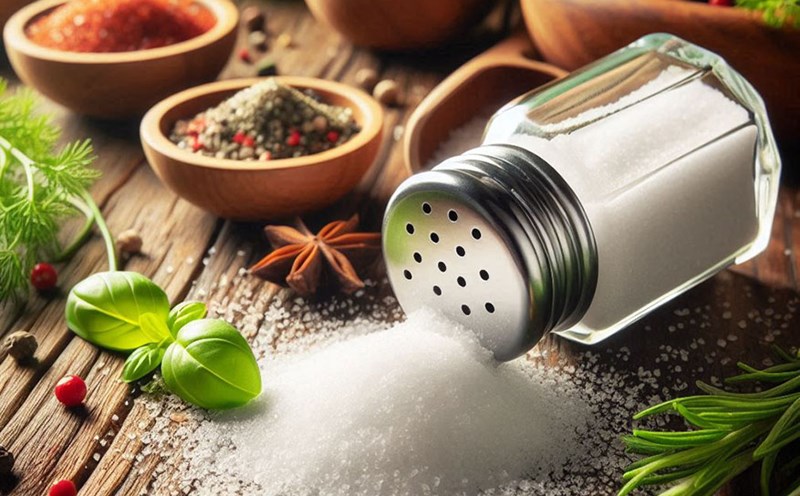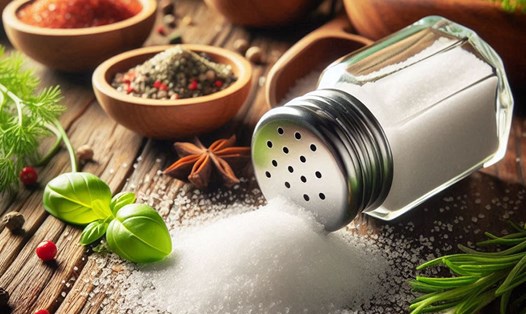Salt needs to be consumed each day
According to the World Health Organization (WHO), adults should consume less than 5 grams of salt per day, equivalent to about 2,000 mg of sodium.
Dr. Rakesh Gupta, Senior Consultant - Internal Medicine at Indraprastha Apollo Hospital (India), recommends the daily sodium intake of 1,5002,300 mg. Adhering to these recommendations helps prevent diseases related to high blood pressure, cardiovascular disease and stroke.
How the body reacts when consuming too much salt
When you eat too much salt, your body will have immediate reactions:
Higher thirst: Excess salt disrupts fluid balance in the body, causing dehydration and creating a feeling of intense thirst.
stay hydrated: The kidneys will work to balance sodium in the body, leading to water retention and bloating. This can cause body parts to become swollen and swollen.
Temporary high blood pressure: Excess salt drags water into the blood, increasing blood volume and leading to high blood pressure.
Long-term health risks
Excessive salt consumption over a long period of time can cause serious health problems:
High blood pressure (high blood pressure): Eating a lot of salt continuously will lead to chronic high blood pressure, a major risk factor for heart disease and stroke. Dr Rakesh Gupta emphasizes that consuming too much salt makes the heart work too hard, which can easily lead to heart failure.
kidney damage: Salt increases the burden on the kidneys in maintaining water and sodium balance. This can lead to kidney disease or worsen existing diseases.
bone health: High sodium levels in the body increase calcium excretion through urine, causing calcium deficiency and increasing the risk of osteoporosis.
Increased risk of stomach cancer: Studies have shown a link between a high-salt diet and the risk of stomach cancer. This may be due to the negative impact of salt on the stomach lining.
Although salt is an essential component for the body, consuming too much will cause both immediate and long-term negative effects.
To protect health, moderation in the use of salt is very important. Consulting a nutritionist can help you adjust your diet appropriately, meeting your sodium needs without harming your health.









